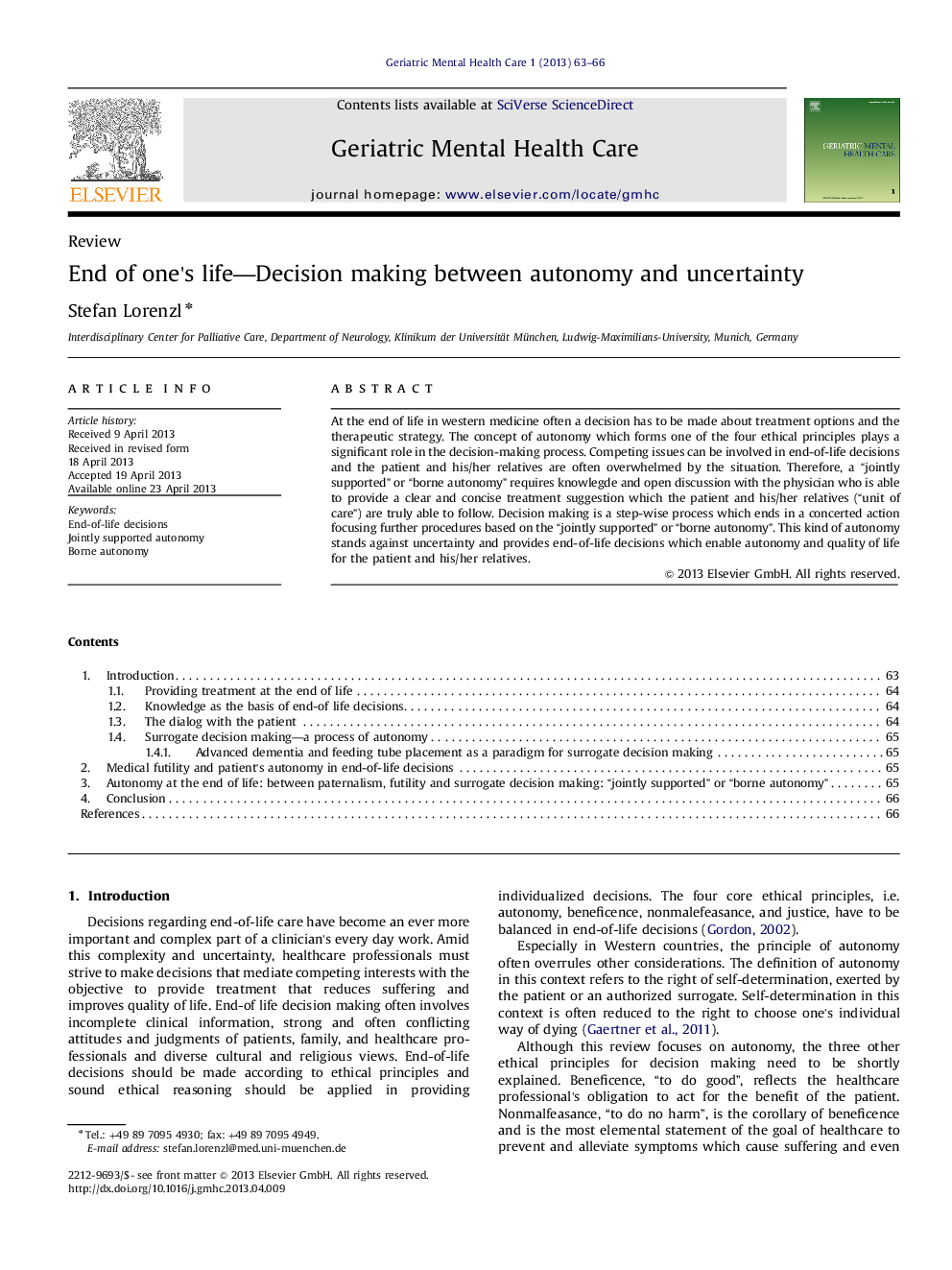| Article ID | Journal | Published Year | Pages | File Type |
|---|---|---|---|---|
| 909189 | Geriatric Mental Health Care | 2013 | 4 Pages |
At the end of life in western medicine often a decision has to be made about treatment options and the therapeutic strategy. The concept of autonomy which forms one of the four ethical principles plays a significant role in the decision-making process. Competing issues can be involved in end-of-life decisions and the patient and his/her relatives are often overwhelmed by the situation. Therefore, a “jointly supported” or “borne autonomy” requires knowlegde and open discussion with the physician who is able to provide a clear and concise treatment suggestion which the patient and his/her relatives (“unit of care”) are truly able to follow. Decision making is a step-wise process which ends in a concerted action focusing further procedures based on the “jointly supported” or “borne autonomy”. This kind of autonomy stands against uncertainty and provides end-of-life decisions which enable autonomy and quality of life for the patient and his/her relatives.
